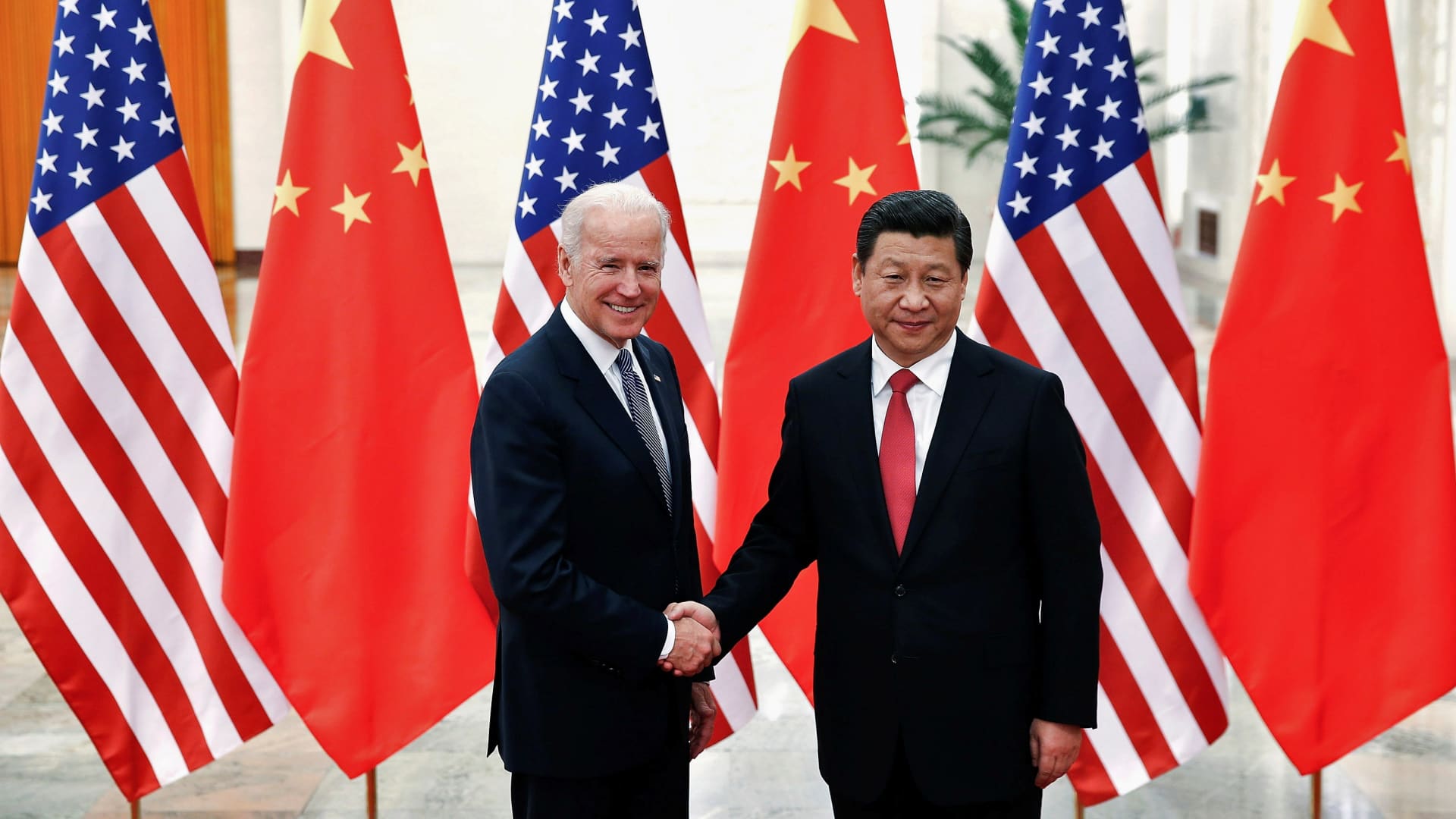
Removing tariffs on imported Chinese goods will strip 1% off inflation in the U.S. over time and return confidence to the economy which could help President Joe Biden at the ballot box, former U.S. ambassador David Adelman says.
“Inflation will be No. 1 issue in midterm elections in the U.S. in November,” Adelman told CNBC’s “Squawk Box” on Monday.
“While the president is limited in his ability to control inflation, there is one important tool in his toolbox,” said Adelman, who served as U.S. ambassador to Singapore during the Obama administration.
“That is the ability to relieve the pressure on the American economy and American consumers that is caused by these very high tariffs rates that are imposed on more than $370 billion annually of Chinese imports.”
“Many economists are saying that over time, you can have a full 1% decrease in the CPI, something that is very meaningful for American consumers,” he said, referring to the consumer price index, a key measure of inflation.”
While former President Donald Trump’s trade war with China was popular among American voters on both sides of the aisle in 2018, Adelman said the effort was economically futile and did not create “meaningful” trade benefits.
“I think the proof is in the pudding. Not only was there no negative impact on the Chinese economy, it had an impact on the U.S. economy. It has acted as a boomerang on the U.S. economy,” Adelman, who is also managing director of KraneShares, said.
“Biden is starting to realize as the election is shaping up, it’s going to be the economy that is most important to voters. If the president can do anything to ease pressure, he should do so. Ultimately, good economics should make good politics,” he said.
The U.S. government is reviewing the Trump-era trade tariffs on Chinese goods, a process that was triggered by legal provisions rather than a U.S. political willingness for a reset in relations.
A growing number of economists, political observers and analysts have called on the Biden administration to slash tariffs as inflation and recession fears grow. Former Treasury Secretary Larry Summers echoed Adelman’s comments earlier Sunday, saying lifting tariffs on Chinese imports was “the right to do.”
“It will hold down prices [and] enable us to take a more strategic approach when dealing with China. It will take 1% or more off CPI over time, cutting tariffs is the right thing to do. I hope the administration will find a way to do it, ” Summers said on NBC News’ “Meet the Press.”
Treasury Secretary Janet Yellen said some tariffs on China served “no strategic purpose” and that Biden was considering removing them as a means of cooling inflation.
Not only did China not meet targets set by the U.S. in the trade deal, analysis from the Peterson Institute for International Economics show the tariffs increased inflation for both U.S. consumers and producers.
In the year to November 2021, U.S. tariffs on Chinese goods added 0.26 percentage points to the CPI, PIIE’s non-resident senior fellow in trade policy Katheryn Russ said in an analysis earlier this year. In the year after the U.S. imposed tariffs on Chinese goods, producer prices also rose by 1%, Russ’s analysis also said.
In March, PIIE’s senior trade policy fellow Chad Bown said China had not bought any of the additional $200 billion of U.S. exports it committed to purchasing under the phase one deal.
As far as a dent to the Chinese economy was concerned, tariffs knocked off just over 0.5% of China’s GDP, Capital Economics chief Asia economist Mark Williams said in a note last week.
“Some Chinese firms were able to evade them by re-routing shipments to the U.S. through third countries, mainly in south-east Asia. This may have offset as much as half of the drag,” Williams said.
Adelman, the former ambassador, said Biden could remove certain tariffs without the onerous task of seeking permission from Congress in two ways.
He could order temporary exclusions to certain tariffs or sign an executive order to lift the tariffs while protecting distinct U.S. industries that China was competing with.
Not only will removing tariffs be good for American consumers in the short run and over time, it will help the President reset U.S.-China relations.David Adelmanformer U.S. ambassador
“Certainly American consumers will reward him for doing that,” Adelman said.
“Not only will removing tariffs be good for American consumers in the short run and over time, it will help the president reset U.S.-China relation.”
“Ultimately having economic engagement between two largest economies in the world would be good for the biggest economy of the world.”
However, Robert Daly, director of the Wilson Center’s Kissinger Institute on China and the U.S. was skeptical about both Washington’s drive to lift tariffs and their contribution to inflation.
He said the political pressure to stay tough on China would outweigh Biden’s desire to look after consumers and relieve them of the burden of bearing a higher cost of living.
“If he simply unilaterally lifted those tariffs without getting anything from China, he would get a lot of pressure from Republicans, especially in the Senate, who would call him soft on China,” Daly said.
Like Daly, Capital Economics’ Williams was also uncertain abolishing tariffs would do much to tame inflation. He said doing so would only reduce CPI by “a few tenths of a percent,” not 1% as others have predicted.
“Putting the tariffs on didn’t cause inflation to rise much,” he told CNBC.



